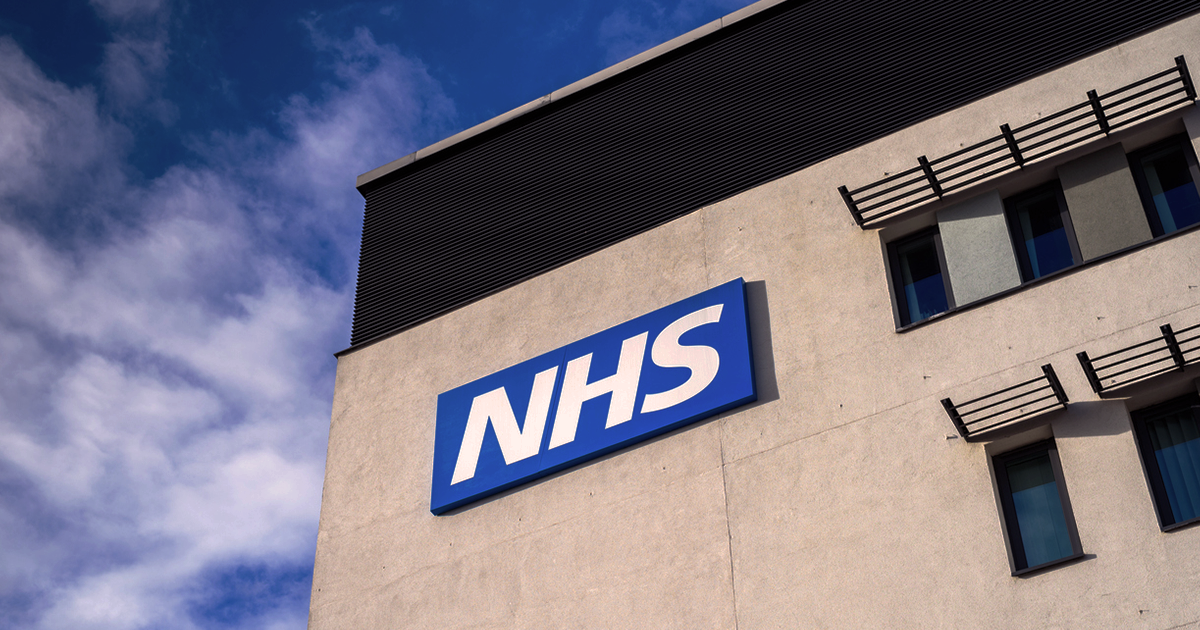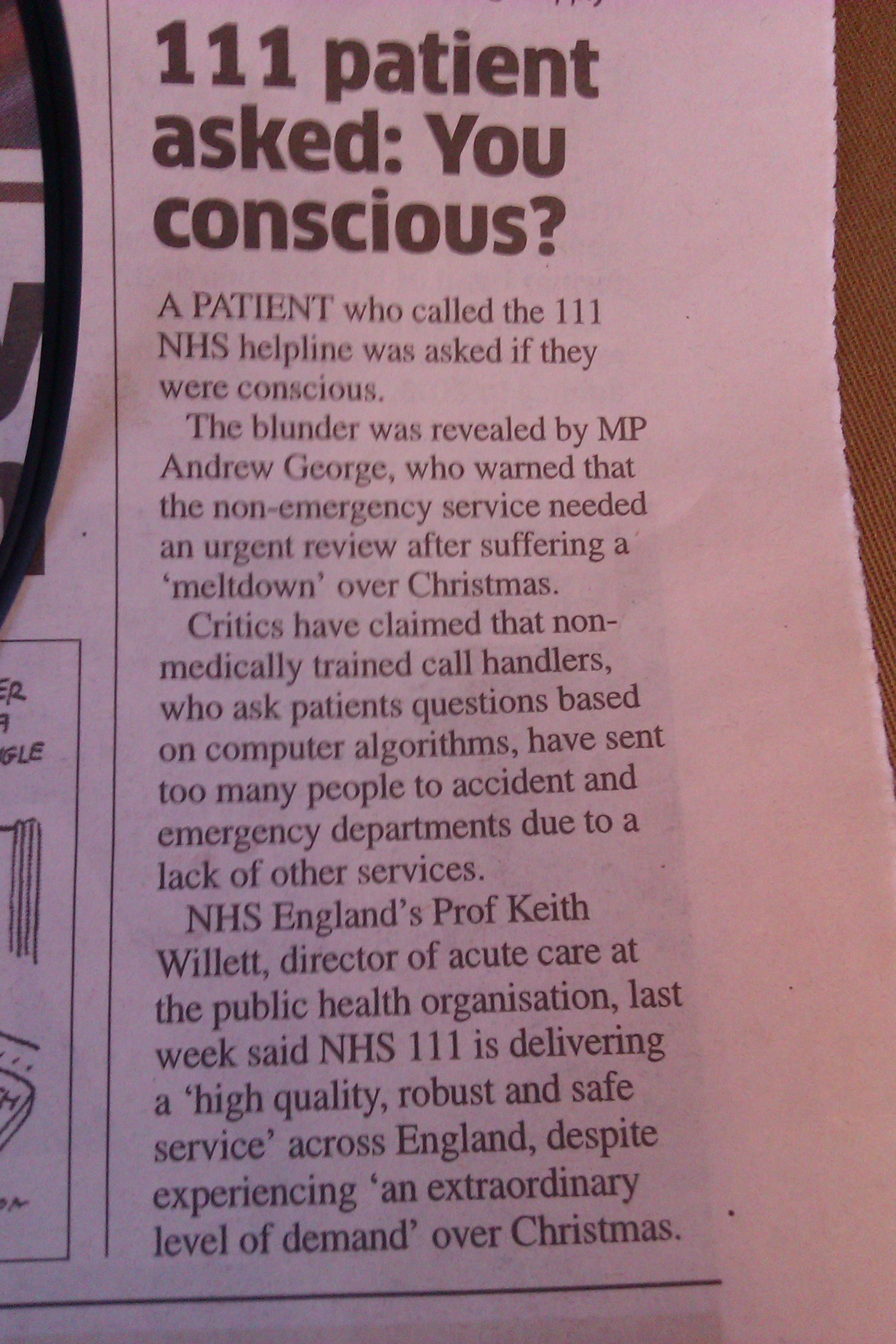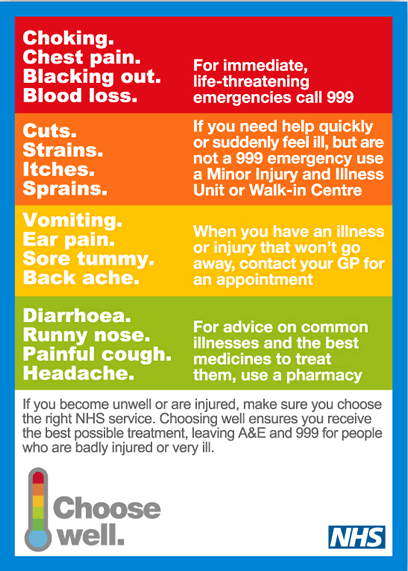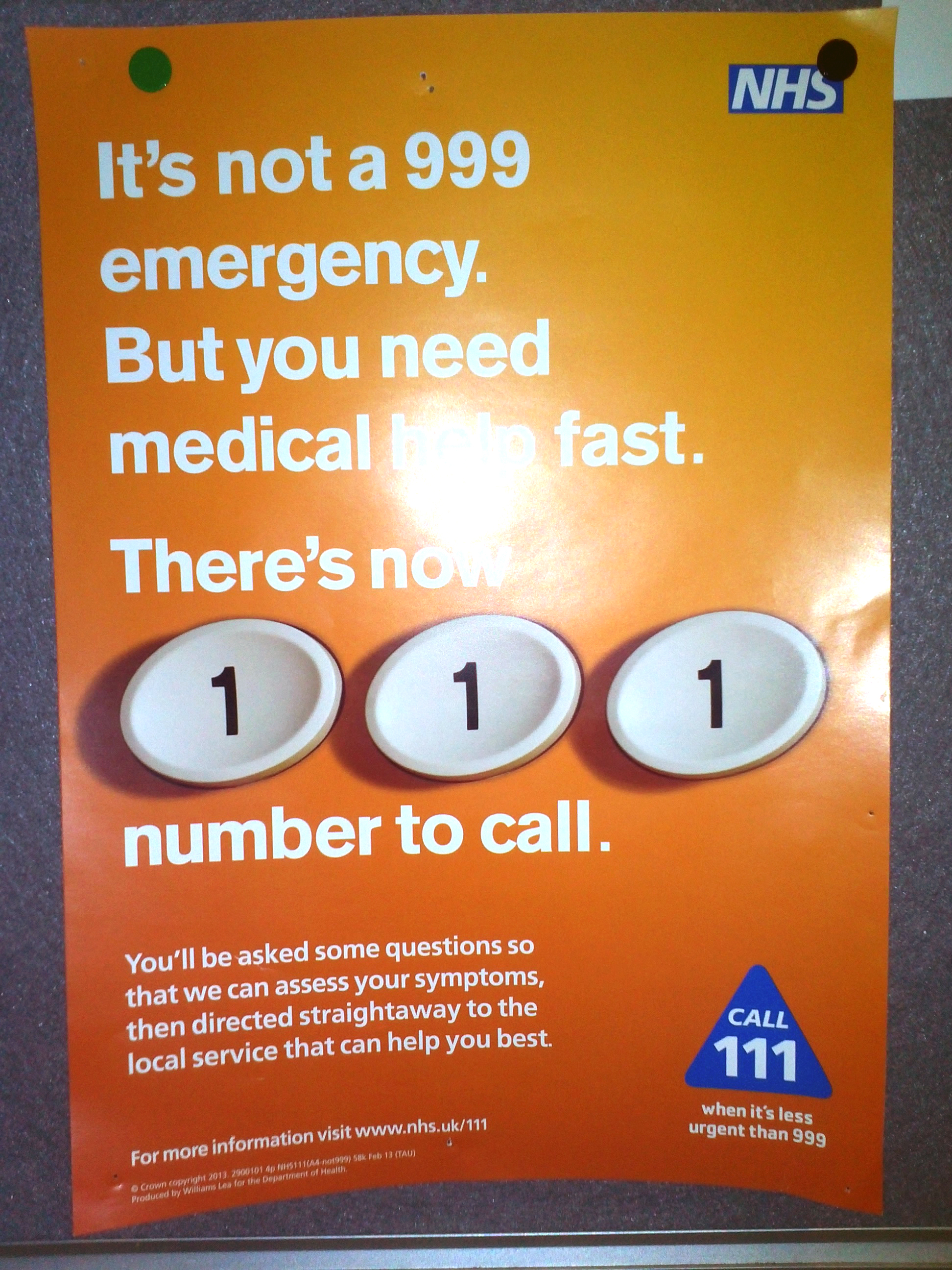The National Health Service (NHS) is continuing to make headlines, with a Lord Ashcroft study revealing on 14 January 2015 that 50 per cent of 200,000 Britons surveyed in November 2014 believe the health service has got worse.
Earlier this month it was also reported that NHS waiting times for A&E are at their worst over the last 10 years. With A&E units under so much pressure, we got to wondering how certain scenarios affecting people with diabetes should be handled to ensure the fastest, most efficient results.
NHS 111
You may have noticed the furore regarding the NHS 111 number recently, which can be useful for certain medical enquiries, but less so for more serious concerns.
Additionally, there are several “Think! Why A&E?” posters scattered across the web, pushing patients towards self care, local pharmacies, GP surgeries, walk-in centres and the NHS 111 line to enquire about various ailments.
For people with diabetes, the symptoms listed are very much open to interpretation, as short-term complications from diabetes are not included. People can therefore assume they fall into a category that may not be appropriate for treatment.
We investigated some scenarios by email and phone with the NHS, but each query was met with a firm response of “Ring NHS 111, we can help you with everything.”
That’s all very well, but it doesn’t really help people with insulin-dependent diabetes who can experience a wide range of worrying events that could require urgent assistance.
We’ve taken a look at three scenarios in which people with diabetes would need assistance and assessed the best courses of action to ensure you are treated as quickly as possible.
Severe hypoglycemia
One scenario that may have plagued many of us on insulin before is being far away from home and having a hypo without any sugar on your person.
Hypoglycemia can usually be treated at home, but some cases of severe hypoglycemia may necessitate calling an ambulance if a significant insulin overdose has occurred or there is a risk of unconsciousness or coma.
While it is your responsibility to ensure you always have sufficient sugar with you, you would need to call 999 for an ambulance and state your location if this situation was to arise and nobody near could provide you with sugar.
Diabetic ketoacidosis
The first sign of diabetic ketoacidosis (DKA), a potentially life threatening short term-complication of diabetes, is often hyperglycemia. Both people with type 1 and type 2 diabetes can be affected by DKA.
If you take insulin and record a blood sugar reading of above 15 mmol/l, you should test for ketones. If you have high ketone levels, advice can be sought by calling 111.
If you then start to feel unwell – typical symptoms of DKA include vomiting and deep laboured breathing – you should call 999 for emergency help.
Running out of medication
Similarly to running low without sugar, this is a scenario that should always be prevented, but on some occasions it may be taken out of your hands.
If you are well stocked for medicine and have ordered new prescriptions on a Thursday, you may expect to receive them from your pharmacy on Monday.
If all your local chemists close for the weekend, you can be stuck if any damage befalls your medication, or due to an event that causes uncontrolled blood sugars, you find yourself running extremely low, or out of medication altogether.
In this scenario, ringing a walk-in centre or 111 would be advised to ensure you collect some emergency medication until your prescription can be collected.
These scenarios are worst case scenarios for people with diabetes, and in cases that aren’t urgent, any diabetic enquiries should be directed to the 111 number, a free service that is available 24 hours a day, 365 days a year.
Otherwise, contacting your GP, diabetic nurse or other medical staff should be your port of call for any questions regarding your diabetes.
Have you any experience of using the NHS 111 service? Have you faced problems trying to access information on diabetic complications before? Share your thoughts with us.






